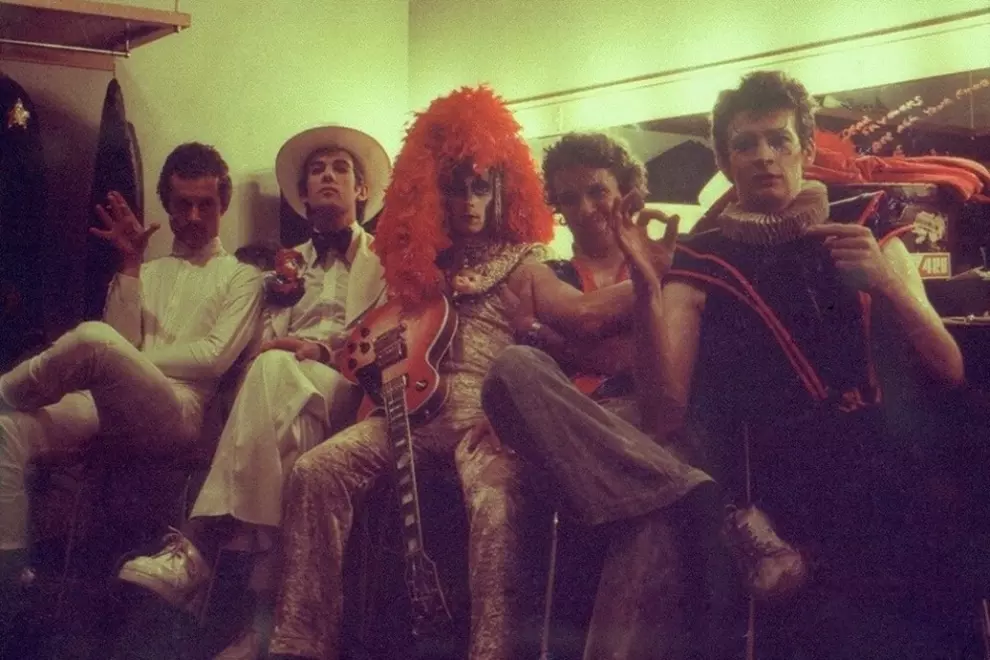If you see the release date for Skyhooks’ iconic debut album, 1974’s Living In The 70s, change on Wikipedia and other corners of the internet, you’ll know why: the internet has officially been corrected by the band.
Wikipedia lists the release date of Living In The 70s, which features hits such as the title track, Horror Movie, Toorak Boy and more, as 28 October. However, as the band states via an impressive bit of research, the album had to be released on 11 October.
Taking to Facebook yesterday (3 November), Skyhooks amended and shared a piece of Aussie rock history by posting a 3XY Chart from 18 October 1974, which finds Living In The 70s debuting at #18 on the 3XY Music Survey.
“I'm sure I'll create a ‘can of worms’ with this post but here goes. History has a way of ‘if you say something enough it becomes true’, such is the release date for Skyhooks Living In The 70's album,” the band wrote on Facebook. “The date used in most areas from Bio's to Wikipedia was 28th October 1974. Even now, Music Facebook pages celebrate it as that date.”
Don't miss a beat with our FREE daily newsletter
But, the plot thickens: “I found a little note in my school diary saying I bought it on October 13th. This intrigued me, as we have always used the Oct 28th date in all our press & general media. I went to our Skyhooks Archives & dug out the 3XY music chart for October 18th. There it was -Skyhooks LP debuting at #18. Now, allowing that charts cover the sales from the week before, it means the release date must have been October 11th. Feel free to comment.”
Check out the little piece of history, courtesy of Skyhooks, below.
Living In The ’70s went on to spend 16 weeks at number one, sell more than 250,000 copies and save the fledgling Mushroom Records from bankruptcy.
Six of the album’s ten songs were banned – Whatever Happened To The Revolution, You Just Like Me Cos I’m Good In Bed, Toorak Cowboy, Smut, Hey What’s The Matter and Motorcycle Bitch – which didn’t surprise producer Daddy Cool’s Ross Wilson. He told The Music’s Jeff Jenkins, “I expected it. It had happened to me with Daddy Cool’s Sex, Dope, Rock ’n’ Roll: Teenage Heaven album [in 1972].”
Mushroom’s Michael Gudinski, for his part, was quick to spot a marketing opportunity. “When all the songs got banned, I thought, ‘This is fantastic. If they want the record, they’re gonna have to buy it; they’re not going to hear it all over the radio.’”
I'm sure I'll create a "can of worms" with this post but here goes. History has a way of "if you say something enough it...
Posted by Skyhooks on Thursday, November 2, 2023
















